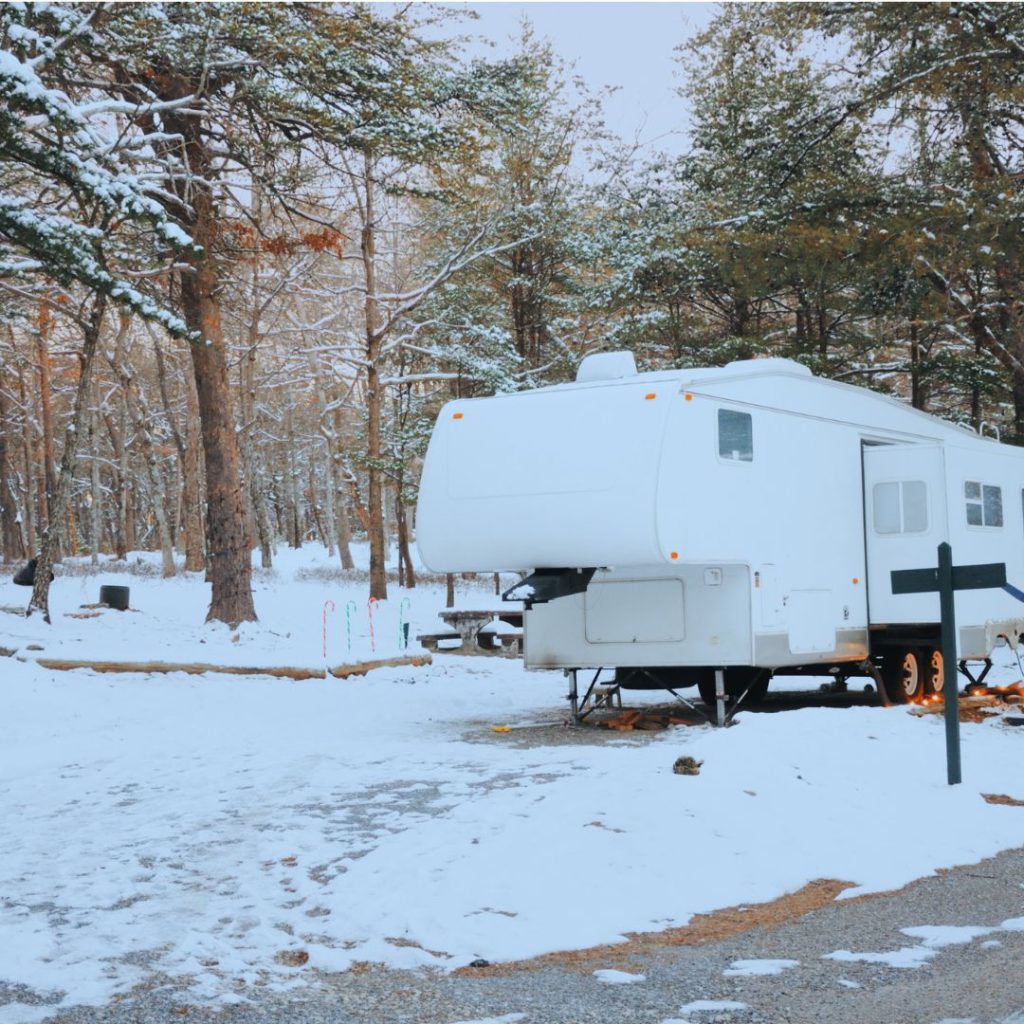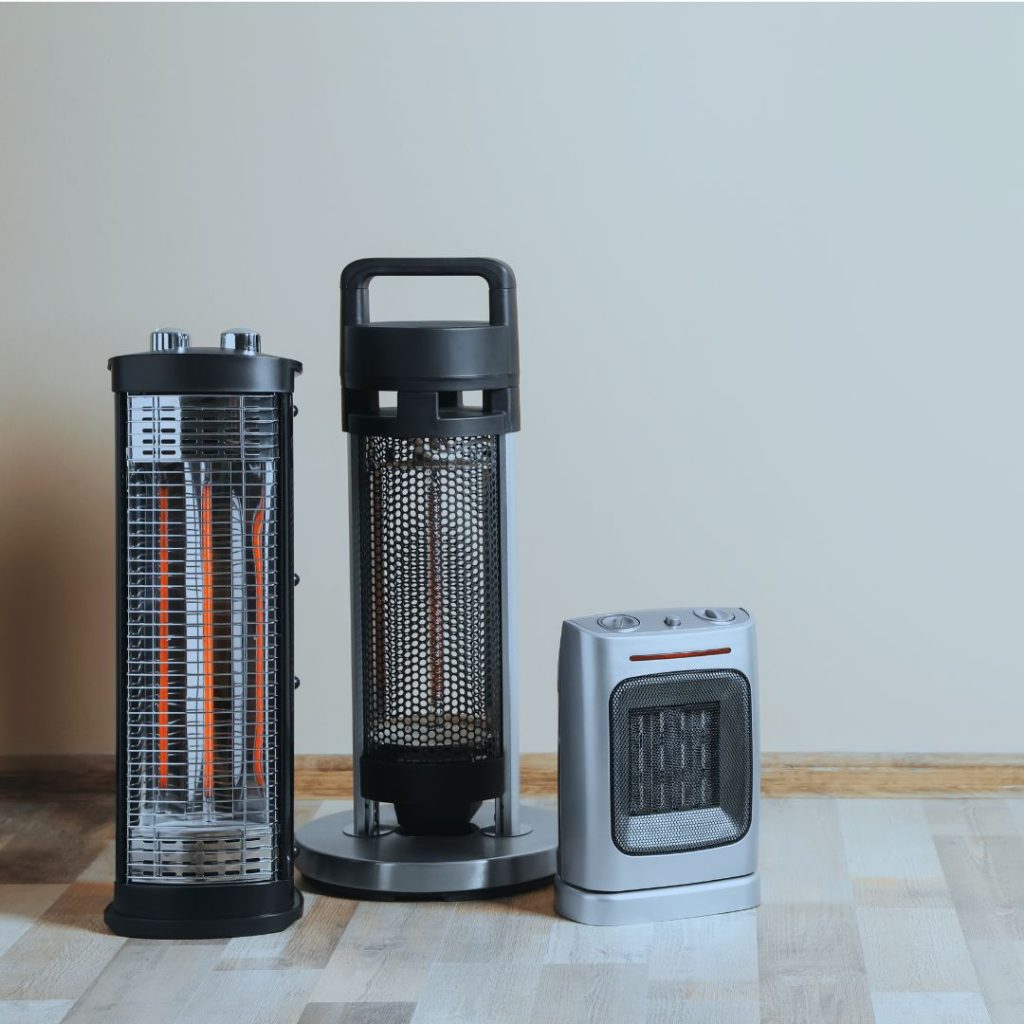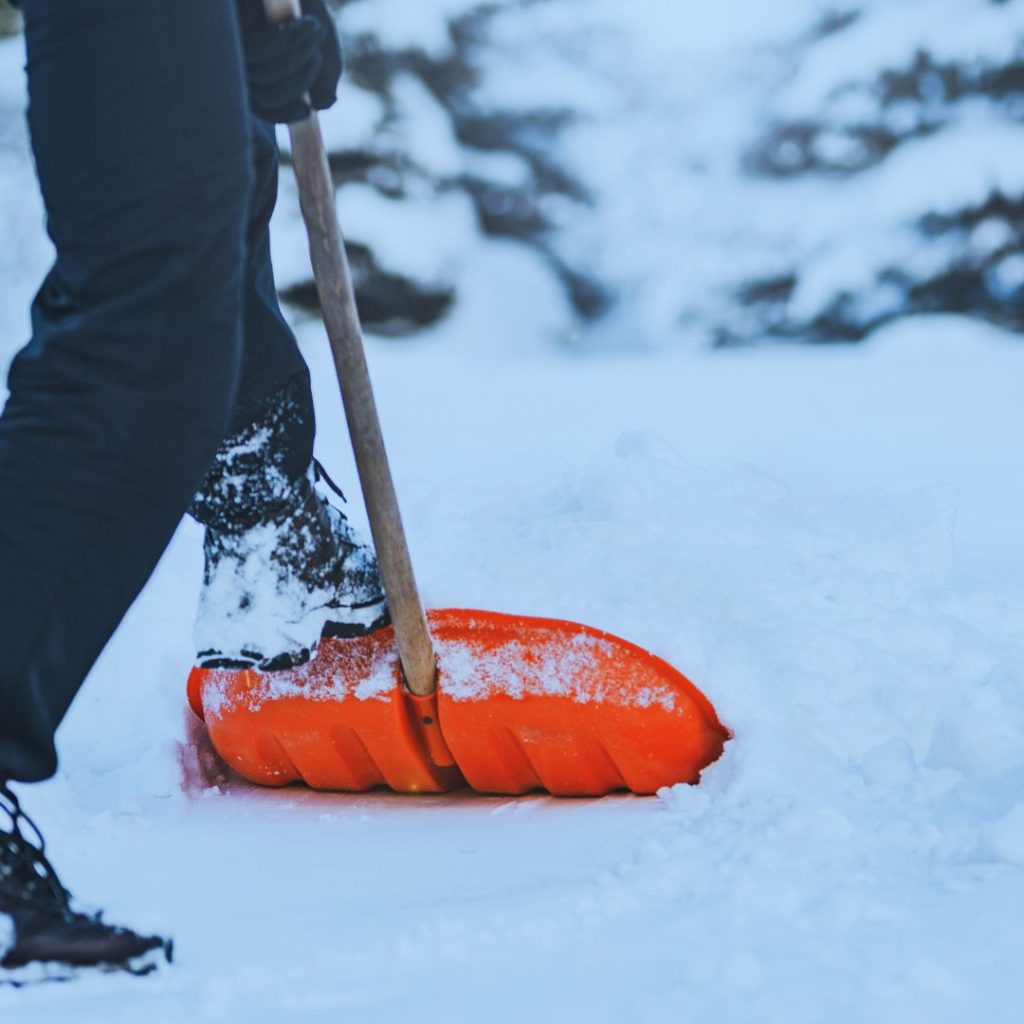Winter camping offers a unique adventure—snow-covered landscapes, cozy campfires, and peaceful campsites. But before you hit the road, it’s essential to winterize your RV so you can stay warm, safe, and comfortable through the cold. Here’s everything you need to know about preparing your RV for a fantastic winter camping trip.

1. Winterize Your Water System
Winter camping means freezing temperatures, and that can spell trouble for your RV’s plumbing if it’s not properly winterized. Make sure to:
- Drain all water tanks (freshwater, black, and gray) and add RV antifreeze to protect against frozen pipes.
- Insulate exposed pipes and areas where the cold might seep in. You can buy pipe insulation or heating tape specifically for RV plumbing.
- Consider tank heaters for added protection. Many RV stores offer heating pads that attach to your tanks, keeping them warm even on the chilliest nights.
2. Insulate Your RV
Keeping the warmth in and the cold out is crucial for a cozy winter camping experience. Here are some ways to make your RV winter-proof:
- Install thermal curtains or use thick blankets over windows at night to add an extra layer of insulation.
- Seal up drafts by inspecting windows, doors, and slides for any gaps or cracks. Use weather stripping or foam tape to keep the cold air outside.
- Add insulation to the floor with rugs or mats, especially if your RV’s flooring isn’t winter-friendly. You’ll feel a big difference in comfort!
3. Upgrade Your Heating Options
Relying solely on your RV furnace may drain your propane quickly, so it’s wise to diversify your heating options.
- Space heaters are a great addition if you have electrical hookups at your campsite.
- Portable propane heaters are another good option, just make sure they’re safe for indoor use.
- Thermal blankets and heated mattress pads provide extra warmth and allow you to use less fuel overall.

4. Prepare Your Engine and Batteries
Cold weather can impact your RV’s engine and batteries, so it’s important to prep them in advance.
- Check your battery levels and ensure they’re fully charged. Cold temperatures drain batteries faster, so keep them topped up.
- Consider a block heater if you’ll be in extreme cold. This device keeps your engine warm, helping it start smoothly on chilly mornings.
- Have an emergency jump starter on hand. They’re compact and a lifesaver if your battery takes a hit from the cold.
5. Plan for Snow and Ice
Snowy landscapes are beautiful, but they can be tricky to manage around your RV.
- Bring a small snow shovel to clear snow from your roof and around the tires, which will prevent ice buildup.
- Stock up on RV-safe de-icing products for steps, windows, and other areas that might ice over.
- Protect your RV roof and slides with a slide topper if possible to prevent snow from accumulating.

Winter camping in an RV offers a cozy escape, but it requires some extra preparation to make the experience comfortable and safe. With these tips, you’ll be ready to take on winter camping like a pro!
Contact us to learn more about how to prepare your RV for winter camping or for any of your RV maintenance needs.
